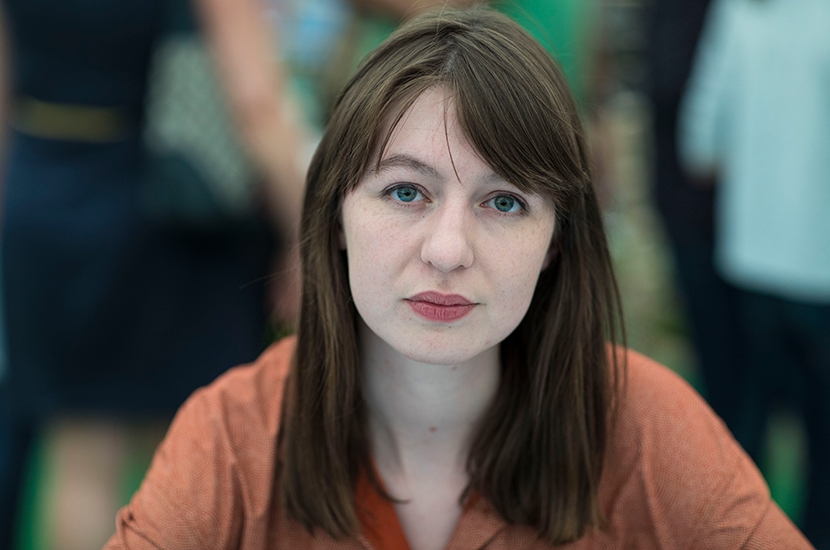The millennial generation of Irish novelists lays great store by loving relationships. One of the encomia on the cover of Donal Ryan’s Strange Flowers (Irish Book Awards Novel of 2020) declares: ‘You have to truly love people to write like this.’
It’s hard to imagine that being said of Colm Tóibín or Anne Enright (let alone Vladimir Nabokov, Evelyn Waugh or Muriel Spark). But there are new kids on the block, and forensically intense examination of feelings between pairs of friends or lovers have propelled the fictions of Sally Rooney into the stratosphere. The phenomenal success of Conversations with Friends and Normal People, along with her influential editorship of the reputation-making literary magazine Stinging Fly, have made her a power in the land.
Her trademark formula combines close-up physical observation, sharp dialogue, will-they-won’t-they haverings and plenty of sex. If the content seems vapid, that is no barrier to televisual impact. More interestingly, there is clearly an ambition to say more than she seems to be saying. The saving grace of Normal People was its beady focus on class differences in modern Ireland, too rarely addressed in contemporary fiction.
Rooney’s third novel, Beautiful World, Where Are You has much in common with its predecessors, but rather audaciously tries to discuss their tricky inheritance through the persona of Alice, ‘widely despised celebrity novelist’, who has achieved meteoric success with her first two novels and feels bad about it. She is 29, the same age as her friend Eileen, an underpaid literary editor, and Felix, a rather unlikely warehouse worker. The fourth point of the quadrilateral, Simon, a religiously inclined ‘policy adviser for a left-wing parliamentary group’, is five years older. Eileen has been obsessed with him since childhood. There are fashionable nods to bisexuality, which don’t go anywhere much. The novel opens with Alice’s awkward first date with Felix, in a grim-sounding seaside town in the west of Ireland where she has holed up after some sort of crisis.
Few though their points of contact are, she decides on a whim to take him to a literary conference in Rome; they become tentatively involved, while Eileen nervously reinvigorates her on-off relationship with Simon. And that is more or less all that happens. The intersections between the four principals are retailed in elliptical conversations with no quotation marks, rather distracted, if heavy-breathing, sexual encounters (on one occasion via telephone), and interminable emails between Eileen and Alice. These missives theorize about life, love, economics and cultural alienation, invoking everything from the aesthetic implications of 1970s plastic to Mycenean culture and Manet’s portraits of Berthe Morisot. (‘Alice, do you remember a few weeks or months ago I sent you an email about the Late Bronze Age collapse?’)
It is very hard to know what to make of these emails. They allow for political discussion of a sort (Alice apparently ‘feels the world ceased to be beautiful after the fall of the Soviet Union’); but the Marxisant posturings never indicate any kind of commitment to action or involvement outside the world of personal relationships. Irony is certainly intended, but it comes with a heavy hand:
‘Do you think you’re the only person who has ever felt sexual desire? In case the answer is yes, I am attaching a PDF of Audre Lorde’s essay “Uses of the Erotic”, which I know for a fact you will greatly enjoy!’
What is missing is the kind of skillful weaving of a backstory which gives characters substance, as practiced by, say, Anne Tyler, Elizabeth Strout and indeed Natalia Ginzburg, on whom Eileen has written a well-received essay. Another of her reference points is The Golden Bowl, also a ‘quartet’ novel fueled by explanatory conversations, which is — as she says — ‘juicy’. But there is little Jamesian juice here. An overwritten interlude describes a family wedding, clearly intended to give Eileen’s life some texture, but it comes too late and adds little; fundamentally, for each member of the quartet, their friends are their families (familiar Rooney territory, again). At the end, if they find a way to combat all this angsty alienation, it will be — unsurprisingly — by creating a family with each other.
At one point in their self-referencing exchanges Alice tells Eileen she ‘can’t read contemporary novels anymore’, especially ‘sensitive little novels about “ordinary life”’. Why don’t novelists, she demands, ‘write about the kind of life they lead and the kind of things that really obsess them?’ This conveniently leads to a disquisition on the economics of literary production in the late-capitalist age. But the main point is, as Alice says, that ‘if novelists wrote honestly about their own lives, no one would read novels — and quite rightly!’ Which may be the reason why, for all Rooney’s sharp perceptions and atmospheric descriptions, the 337 pages of this book are such a hard slog. Or maybe I just don’t love people enough.
This article was originally published in The Spectator’s UK magazine. Subscribe to the World edition here.

























